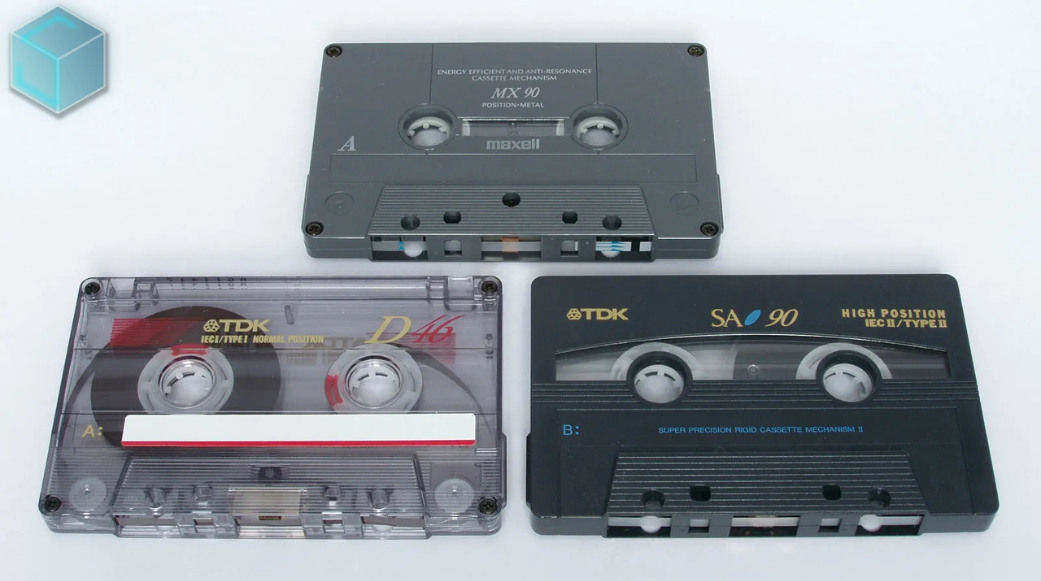
October 23, 2025
Discover how Mix Master strengthens your brain just like an instrument - training focus, creativity, and emotional intelligence through the science of sound.
Read more.png)
September 8, 2025
Tools like Suno are now powerful enough to generate melodies, lyrics, and even full songs in seconds. That’s exciting—and controversial. Just ask Timbaland. Recently, he came under fire..
Read more
August 23, 2025
The 1980s and 1990s analog music medium known as cassette cassettes is experiencing an unanticipated comeback, with Gen Z spearheading the trend. Taylor Swift, who included cassettes in the release...
Read more
August 23, 2025
This week's most notable headline: Doja Cat's erotically charged, '80s-inspired music video, "Jealous Type," is dominating social media feeds and cultural discourse, marking her most daring...
Read more
August 23, 2025
J-hope and GloRilla's "Killin' It Girl," a spectacular blend of K-pop flare and shameless hip-hop heat that has taken the world by storm, is this week's winner of the Best Collaboration of Summer...
Read more
August 23, 2025
Carly Rae Jepsen is giving fans the ultimate gift for the 10th anniversary of her critically adored album Emotion: a special edition featuring four never-before-heard tracks and two fresh remixes...
Read more
August 23, 2025
The wait is over, ARMY! BTS is officially back together and balancing work and play in their first moments of reunion after completing mandatory military service. J-Hope sent fans into a frenzy...
Read more
August 23, 2025
Christian music stepped outside of its quiet comfort zone in 2025. "Hard Fought Hallelujah," a worship song by Brandon Lake, went platinum, sold out festival stages, and exploded from churches to...
Read more
August 23, 2025
In late July 2025, Christian artist Forrest Frank (of Surfaces, now a solo juggernaut in faith-pop) posted from a hospital bed: he’d fractured his L3 and L4 vertebrae in a skateboarding accident...
Read more
August 21, 2025
On September 16, the masked metal phenomenon Sleep Token will embark on their 2025 "Even In Arcadia Tour" across North America. The 18-show tour, which includes a huge date at Brooklyn's Barclays...
Read more
August 21, 2025
Due to a line dance that went viral and won over fans' hearts both inside and outside of the United States, 22-year-old Tre Little's song "Boots on the Ground" has become a cultural sensation this...
Read more
August 21, 2025
In addition to preparing for her next album, The Life of a Showgirl, Taylor Swift is reviving the physical medium this week by putting her songs on cassette tapes. This sentimental action...
Read more
Photo Source - Tim Saccenti
Thrash metal is a relatively niche and unique genre of music. Since its inception, thrash has struggled to become mainstream popular, with other genres such as rock, hip-hop, and pop dominating the music industry. However, a few thrash metal bands broke through this barrier and became very popular. This article will discuss the history of one such band: Metallica, which is arguably the most commercially successful and well-known thrash metal band in the world.
Metallica was created in October of 1981 in Los Angeles when drummer Lars Ulrich put out an ad looking for other thrash metal musicians to jam with. The original Metallica line-up consisted of Ulrich on drums, James Hetfield on vocals and guitar, Dave Mustaine on guitar, and Ron McGovney on bass guitar. Metallica recorded their first song, “Hit the Lights”, in 1982, which helped generate some publicity for the band and allowed for their first live performance to be held at Radio City in Anaheim. Later in 1982, Metallica opened for the British heavy metal band Saxon, which further boosted the public awareness of the band.
During the early years, the band’s line-up experienced some turmoil. In late 1982, McGovney was replaced by Cliff Burton after Mustaine and Hetfield witnessed Burton playing live with another band. In April of 1983, the band fired Dave Mustaine due to his drug and alcohol abuse, and replaced him with Kirk Hammett. Mustaine went on to form a new thrash metal band to rival Metallica, called Megadeth, which also became very well known. The next month, the band recorded their first album, titled ‘Kill Em All’, featuring songs like ‘The Four Horsemen’, ‘No Remorse’, and ‘Jump in the Fire’. The album was heavily regarded as being groundbreaking, featuring speedy and intricate guitar-playing, break-neck tempos, and complicated musical structures.
Metallica continued on their upward trajectory with the release of two albums; ‘Ride the Lightning’ in 1984 and ‘Master of Puppets’ in 1986. With classic songs such as ‘Ride the Lightning’, ‘For Whom the Bell Tolls’, ‘Fade to Black’, ‘Master of Puppets’, ‘Orion’, and ‘Leper Messiah’, these two albums solidified the bands position as a leader in thrash metal. However, this was thrown into question when their bus crashed while on a tour in Sweden, tragically resulting in the death of Cliff Burton. After much thought and with the permission of Burton’s family, the band recruited Jason Newsted as their new bass guitarist.
Metallica released their first album after the passing of Cliff Burton in 1988, titled ‘..And Justice For All’, and was meant to be a tribute to their fallen friend. Including songs like ‘One’, ‘..And Justice For All’, ‘Blackened’, and ‘Harvester of Sorrow’, The album became a huge commercial success, breaching the top 10 of the Billboard 200. In addition, ‘One’ was nominated for a Grammy Award. Boosted by their marked increase in popularity, Metallica released their self-titled album in 1990, as well as ‘Load’ in 1996 and ‘Reload’ in 1997. There was a significant shift in the style of music in these albums that drifted away from thrash and moved towards hard rock and heavy metal. With hits like ‘Enter Sandman’, ‘Nothing Else Matters’, ‘Until it Sleeps’, ‘Fuel’, and ‘King Nothing’, these albums were widely successful, but drew criticism from older fans who were upset with this genre shift, claiming that the band had ‘sold out’.
In early 2001, Jason Newsted quit the band due to personal reasons, and was replaced by Robert Trujillo in 2003. Throughout the late 1990s and 2000s, Metallica continued to make new music, releasing ‘St. Anger’ in 2003 and ‘Death Magnetic’ in 2008, as well as ‘Garage Inc.’, which was a cover album, in 1998. These albums highlighted Metallica’s ability to evolve and experiment with new kinds of music, which had the dual effect of drawing in new fans while at the same time resulting in older fans becoming disinterested. In 2016, Metallica released an album called ‘Hardwired… to Self-Destruct’, which was reminiscent of the intense thrash metal style of music from the early days of the band. Featuring songs like ‘Dream No More’ and ‘Atlas Rise’, the tour for this album was one of the highest-grossing tours ever. This legendary band is still active today and continues to tour extensively.